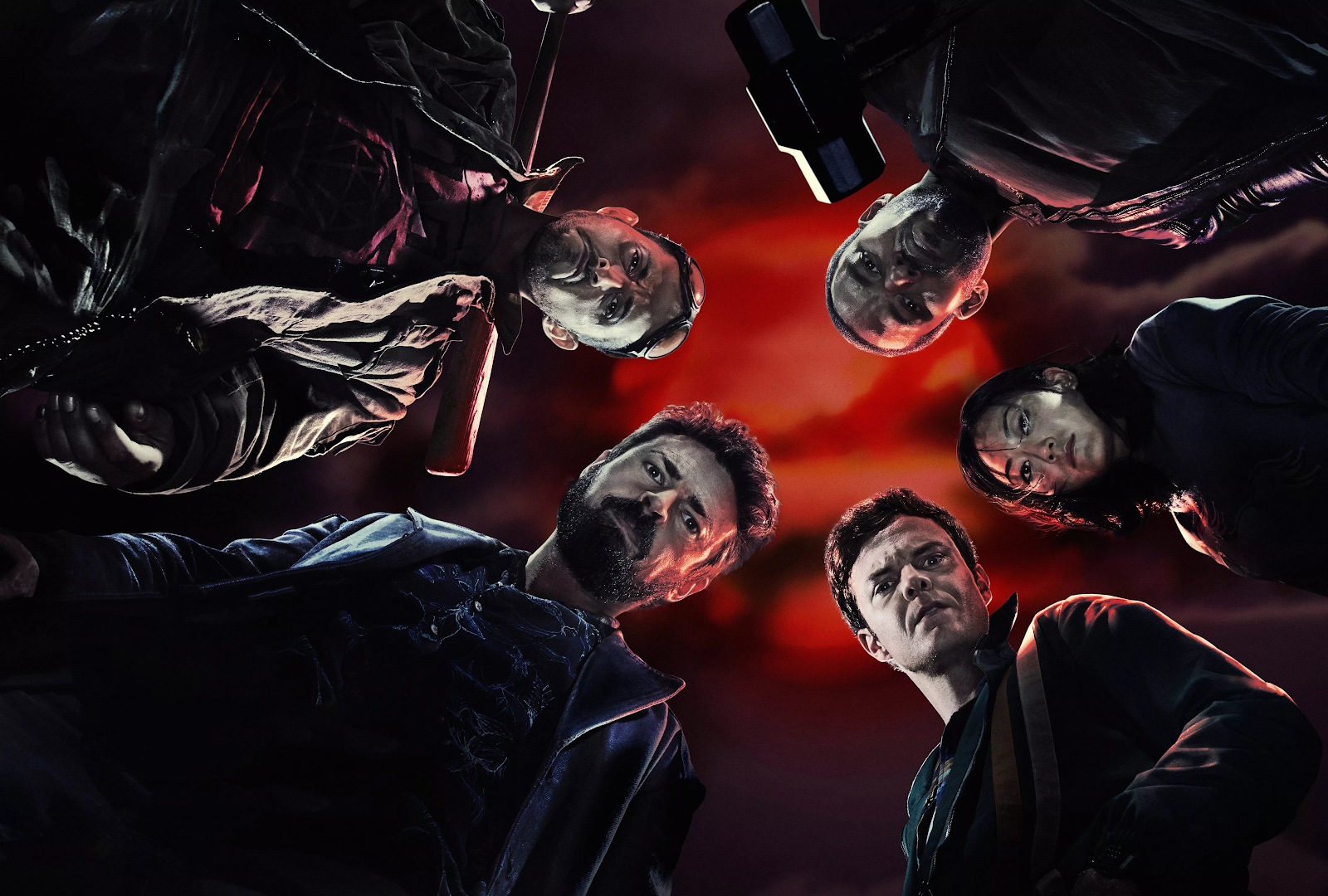Using the Superhero Genre to Critique Identity: The Boys Initiates Self-Reflection
Since I was a little girl, I’ve been watching superheroes on my TV who use their powers to fight against evil. My superhero fascination began in the 90s with the incredible X-Men, the 2000s introduced me to Tobey Maguire’s Spider-Man, and after 2008 I watched the iconic Marvel movies dominate our screens, a period that began with the infamous Iron Man. However, I noticed that the narrative surrounding superheroes shifted around 2019 when the TV series, The Boys, was released. The Boys features a group of ordinary humans led by Butcher who make it their mission to defeat Homelander, the main antagonist, and other evil supes. Comic books have criticized the morality of superheroes, but TV shows were just starting to do something similar by utilizing this trope and this shift is evident when analyzing more recent superhero shows (Invincible, X-Men 97). The Boys (2019) differs because it boldly criticizes American society by holding a mirror up to our reflections and asking, “do you know this is what you look like?” The Boys dissects American identity in its storytelling capabilities and links its fictional world to historical events in America, so that they can encourage viewers to advocate for change.
In The Boys, there are two main classifications of people: supes and humans. Humans are regular people who have no superpowers and supes are humans who were injected with an artificial drug, compound V, that gifted them with unique genetic abilities. Vought International is a company which monopolizes multiple sectors of the American economy by using superheroes to sell their products, creates and manages all superheroes, and is where their most important superhero, Homelander, resides. Homelander is supposed to be the epitome of America because he’s selfless and strong, and is adorned in red, white, and blue with an American flag as his cape. He’s a hero to the public, but a menace to those who truly know him, or work alongside him, and the duality of his image represents the inauthenticity of our own American "heroes."
In season six, Homelander collaborates with Sister Sage who provides him with a plan to become dictator of the USA and she advises him to place his dissenters into prisons. They consult with another supe, Tek Knight, not because they need his powers but because he controls a majority of the prisons in their fictional America. He explains to Firecracker (another supe) that Vernon Correctional Services is the correctional facility he inherited that generates all of his wealth, not his business deals he’s negotiated from his career as a superhero. Tek Knight’s fictional prison sheds light on America’s concentration camps and privatized prison systems like CoreCivic; a company which generates hundreds of millions through their own prisons. CoreCivic has had a levy of accusations against them including having no incentive to rehabilitate prisoners, being understaffed, unsanitary conditions, and more recently, donating $500,000 to Trump’s presidency. Viewers are upset and aghast when they watch this moment on TV, however, the writers wanted us to see the parallels between this fictional world and our own. Moreover, another aspect in this fictional world brings attention to another issue within American history.
Season two has our protagonists Frenchie, Kimiko, and Mother’s Milk visit Sage Grove Center, a psychiatric facility, where they meet a supe named Cindy. Cindy has a mental illness and was admitted to Sage Grove Center where she was experimented on by Vought and injected with compound V, assumedly unwillingly. Mental patients of psychiatric facilities were commonly used as test subjects in medical and scientific research and the writers embedded this fact into their show. In the 1950s through the 70s, mental patients and inmates in Oklahoma were used to test radioactive materials; other patients in mental institutions would be exposed to viral diseases in Connecticut. Viewers feel bad for Cindy because she was abused by the system that was meant to help her and her anger directed at our protagonists is justified. She was a vulnerable member of society and instead of being protected, she was experimented on for capitalistic profit. The writers are not just critiquing America’s past but are asking for their viewers to care about these issues.
A superhero has encapsulated the American identity for years and will continue to do so throughout the next few decades. The writers of The Boys are using the superhero genre as a vehicle to initiate a dialogue with their viewers and are imploring them to become engaged. Fortunately, a reflection in the mirror isn't permanent.





Comments
Post a Comment